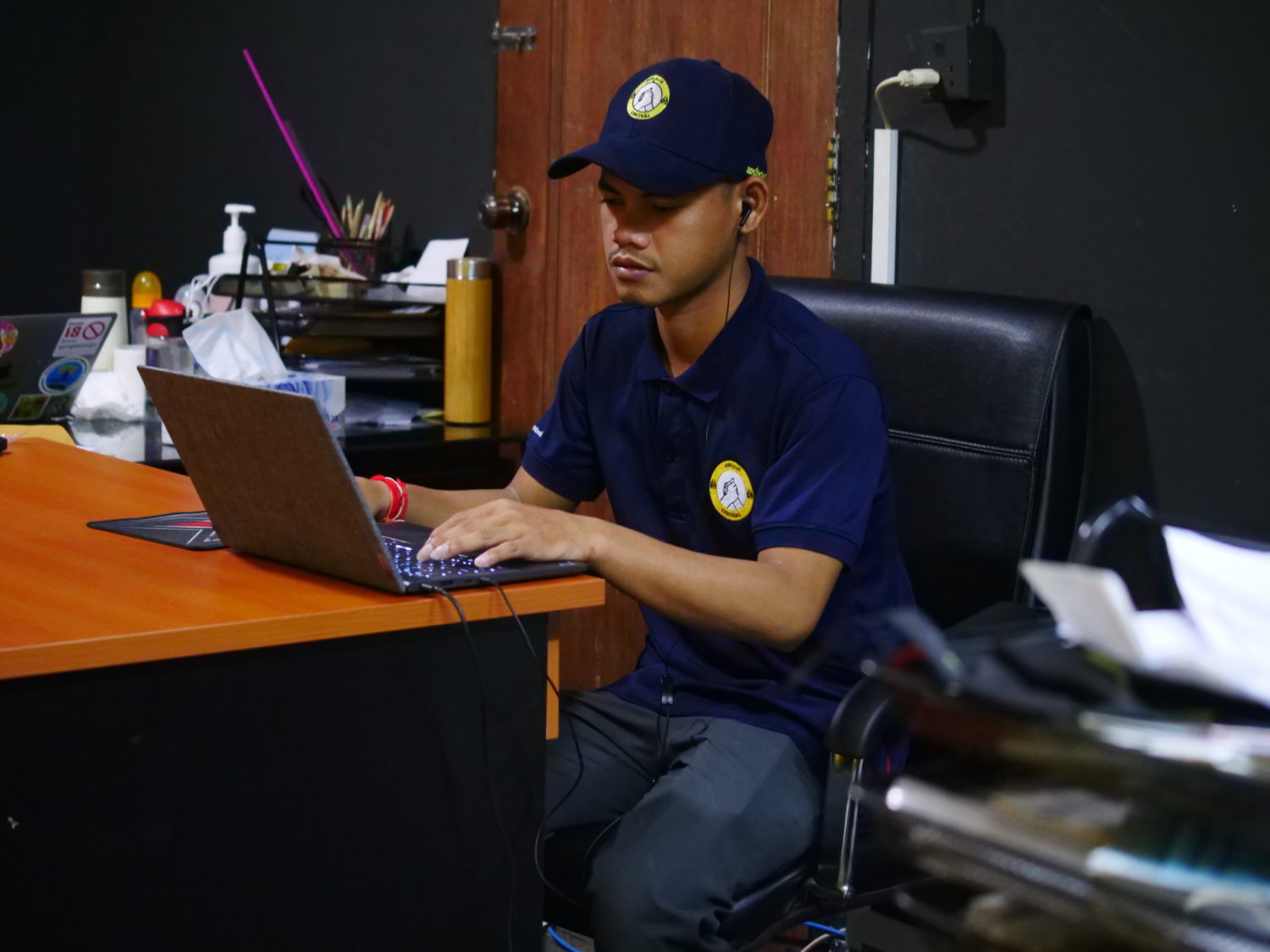Kea Sokun, the 24-year-old rapper previously jailed for incitement, said Wednesday that he was “very disappointed” that NGOs took down his rap video after threats of legal action from the government this week.
Sokun, 24, told VOD that he was worried for his safety after NGO leaders involved in the video’s production were summoned for hours of questioning earlier this week, but has not received any summons to court or been detained himself.
“I feel so much regret” that the government called on the NGOs to remove the video, he said.
“The song did not do anything wrong. … I feel regretful. It should be that the listener can judge whether the song is right or wrong,” he said.
On January 3, Licadho and labor rights NGO Central released a video, “Workers Blood,” featuring Sokun and commemorating nine years since a garment workers’ strike over minimum wage led to clashes with military police and the deaths of at least four civilians.
In the music video, Sokun talks about victims’ families waiting for justice and having “no information.” It also features images of security personnel beating workers and clips from Radio Free Asia, which shut down its Phnom Penh bureau amid intense government pressure.
“For the past nine years they have been left with pain and sorrow and sadness by gestures full of blood,” Sokun raps in the song.
Three days later on January 6, Culture Minister Phoeurng Sackona requested in a letter that the National Police stop “Workers Blood” from circulating on social media. The video amounted to incitement, authorities alleged.
Police questioned Licadho spokesman Am Sam Ath over the video on Monday, after which the human rights group took it down from its website and Facebook page. Central’s head, Moeun Tola, and Vorn Pov, president of worker association IDEA, were questioned Tuesday afternoon, after which Central removed its video.
Leader of the Coalition of Cambodian Farmer Community Theng Savoeun was scheduled to be questioned Wednesday but asked to delay because he was out of town, according to Ou Tepphallin, president of Cambodian Food and Service Workers Federation. CCFC’s video had been removed from Facebook as of Wednesday morning.
Sokun said that he was still in his home province of Siem Reap and had not heard of any potential measures against him, instead reading the Culture Ministry’s letter for the first time on Facebook.
Sokun said Licadho and Central had promised they would provide him with a lawyer if any legal threats arose. The rapper was convicted in 2020 of incitement charges related to a different song with nationalistic lyrics and was released in 2021.
“I’m worried too, but the song has already been deleted,” he said, adding, “I don’t know yet if in the near future anything could happen to me.”
Sam Ath told VOD that Sokun was not facing legal action as he did not do anything wrong. Licadho and Central had written the lyrics and “Workers Blood” aimed only to commemorate the ninth anniversary of the violence, urge the police to seek justice for the victims’ families, and prevent similar violent actions from happening again, he said.
“If we make observations according to the law, he didn’t commit any crime,” Sam Ath said of Sokun. “He just helped sing what Licadho and Central wrote to commemorate the nine years of violence.”
Sokun said that he would continue to compose his own songs, but would first “rest for a while.”













